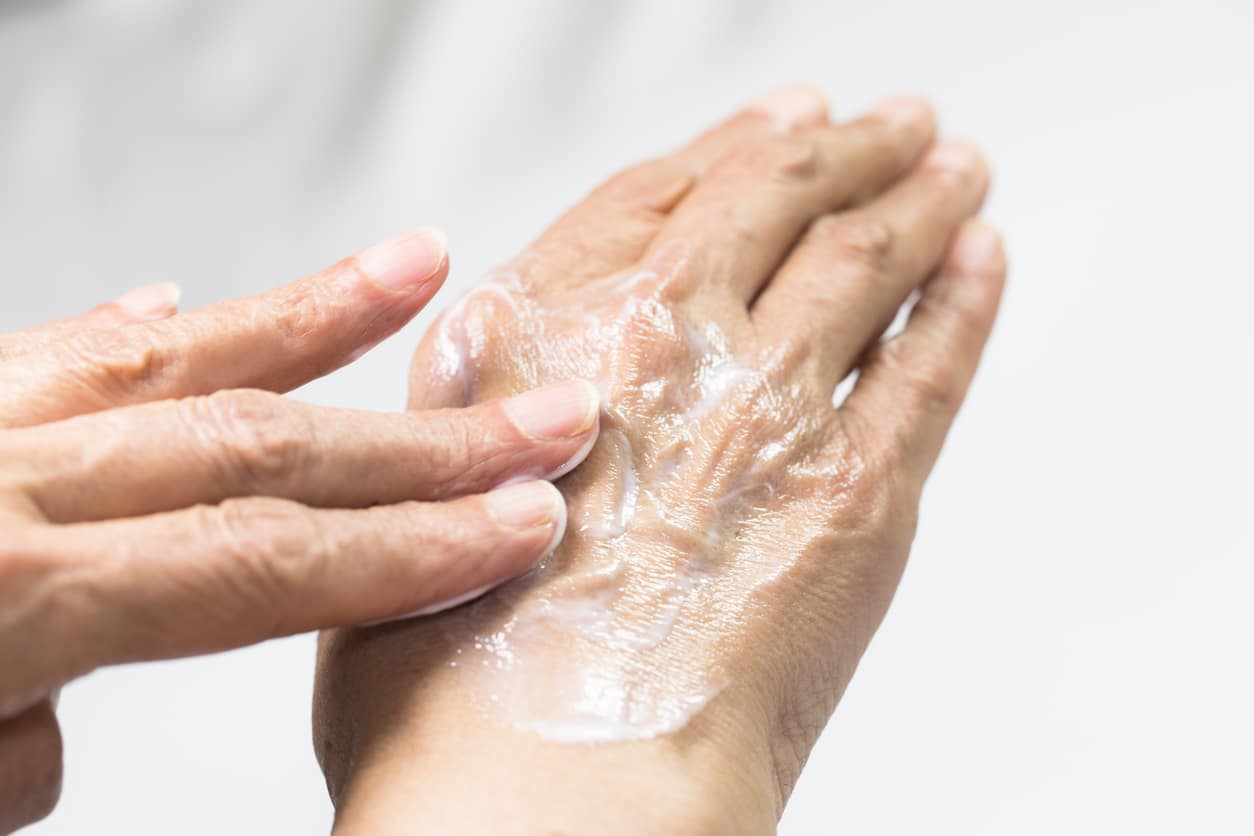Winter can be a real challenge for seniors, including the lower humidity which can wreak havoc on aging skin. When the furnace is keeping seniors warm it is also stripping the air and their bodies of moisture, making their already compromised skin even more susceptible to damage. But there are steps to take that can help keep skin healthier, even as the wind and snow blow. Here are the top tips from experts.
Skin Care Tips for Seniors
Tip #1 Understand how skin ages
Everyone expects skin to change with time. Crow’s feet and laugh lines are often the first signs, but as time goes on changes within the body make skin more fragile as well. Over a lifetime, the ravages of exposure to the sun will appear in wrinkles and age spots (hyperpigmentation), declining lipid production causes dryness, skin loses elasticity and becomes thinner, and immune function is reduced, increasing the risk of infection. Add to those, loss of estrogen in postmenopausal women, some medications, skin conditions like ichthyosis, psoriasis and rosacea, and the long-term impacts of environmental factors, diet and stress, and it’s easy to understand why aging skin needs tender loving care.
Tip #2 Stay hydrated
One way to help aging skin is to stay hydrated by drinking plenty of water. Although drinking water will not reduce wrinkles or crow’s feet, according to the webmd.com article “Does Drinking Water Really Help Your Skin?” one study showed that participants who drank more water than normal did see increased skin thickness. In general, however, drinking enough water is not an instant fix, but rather a good rule of thumb for maintaining overall good health.
Tip #3 Use a humidifier
Outdoor winter air is dryer because cold air holds less moisture, and indoor air is dryer because it is stripped of moisture by the furnace. While there isn’t much to be done about outdoor air, using a humidifier indoors may help. Many furnaces have built-in humidifiers but they are notorious for becoming clogged or otherwise not working so have a professional assess whether the humidifier needs repair or replacement. For those without central humidifiers, using a room humidifier is another option, especially while sleeping. For a great rundown of humidifier facts, check out the mayocling.org article, “Humidifiers: Ease skin, breathing symptoms.”
Tip #4 Moisturize, moisturize, moisturize
Moisturizing ointments, creams and lotions are another way to improve dry winter skin. According to the health.harvard.edu article, “Moisturizers: Do they work?” moisturizing helps trap moisture in the skin, thus minimizing dryness and discomfort. However, be aware of labels that make claims and use scientific words describing the product. For example, many labels say “hypoallergenic,” but that is hard to prove because there is actually no government standard for this claim. Another example is when labels tout a list of vitamins that may have no actual benefit due to the small amount or degradation. Also, opt for thicker ointments or creams over lotions to get the most protection and if moisturizing doesn’t help consult a physician to be sure it’s not something more than winter dryness.
Tip #5 Limit bathing time
Another easy way to minimize dry winter skin is to limit time in the tub or shower and keep the water temperature as cool as possible. If you use harsh deodorant or heavily scented soaps it may also help to switch to one of those listed in the healthline.com article, “Top Soaps for Dry Skin.” Also, be sure to apply moisturizer very soon after drying off to help trap maximum moisture.
Tip #6 Keep skin covered outdoors
Protecting skin when outdoors is another good way to minimize dryness, especially when outside for extended periods of time. The face is generally the most exposed so wearing sunscreen, a scarf and sunglasses can help, as can wearing a medical mask when with a group. Warm gloves or mittens are also essential as are taking indoor breaks when fingers and toes begin to tingle.
Tip #7 Eat skin-healthy foods
Last but not least is a healthy diet. While smearing vitamins on your skin may not help, eating them and other vital nutrients just might. According to the medicalnewstoday.com article, “14 foods to help protect and moisturize dry skin,” a lack of vitamins A, C, D and E, and minerals selenium and zinc can promote dry skin, while omega-3, antioxidants and turmeric can help prevent dry skin. Also important are foods to avoid like those high in fat and sugar which can cause skin inflammation.
A warm, healthy and safe winter is easy at Ganton’s Countryside. For more information about Countryside, please call Margaret Nagel at (517) 206-5000 or download our brochure to learn about our care levels, cost, and amenities.


